In celebration and recognition of Pride Month, we are featuring stories from the 2SLGBTQIA+ MS community. All people impacted by multiple sclerosis deserve to see themselves represented in the stories we tell.
We know that it is much more than just one month, week, or day and are committed to representing and amplifying voices from diverse perspectives all year round.
Elyse’s Story
“I was diagnosed with multiple sclerosis in 2016, a few months after my father passed away. It was a difficult time and telling my family I had MS wasn’t easy.
My grandmother had MS and unfortunately, there were no treatments available at the time. When my family found out that I also had MS, they automatically pictured me in a wheelchair like my grandmother. I had to deal with a lot of preconceived notions, especially the idea of a potential physical disability. I decided to involve my family in discussions with my treatment team so they could have a better understanding of the disease and learn that it affects everyone differently.
Having MS and being part of the 2SLGBTQIA+ community means having two continuous coming outs. I don’t think we come out once in our lifetime. We constantly choose when, how, and with whom we share the fact that we are part of the 2SLGBTQIA+ community. We face the same dilemma when we talk about MS: Should I tell my manager? My work team? A woman I’m meeting for a first date?
My parents weren’t thrilled when they found out I was a lesbian, but they have always been respectful. Several years after I came out, I had a discussion with my mother and she told me that she didn’t want life to be difficult for me, which she associated with being part of the 2SLGBTQIA+ community.
For me, dealing with the stigma of MS is more difficult than the stereotypes of being a lesbian. I find it harder to share the fact that I have a disease, since I have no visible symptoms. However, as invisible as it is to others, it is very visible to me every day.
Awareness and acceptance are so important for members of the 2SLGBTQIA+ community and for people living with MS. Representation is key for communities that may be perceived as invisible. It’s important to fight for rights, equality, and awareness so that one day, it won’t even be a second thought.
To people in the 2SLGBTQIA+ MS community, I promise you are not alone! Let’s create opportunities to talk to each other, listen to each other, and build our community.”
Richard’s Story
“My MS story starts off the same as many individuals: after a few months of weird, unexplained symptoms that I initially attributed to being tired, stressed, and working too much, I knew I couldn’t continue to ignore them.
After many tests and MRIs, I was diagnosed with MS in 2015. Even though my neurologist and I discussed the possibility of MS, the diagnosis still hit me like a ton of bricks. I didn’t know what having MS meant or how it would affect my life. I’m thankful that my boyfriend Marc (now husband) was there with me because I was in a state of shock and wasn’t able to fully process anything.
My diagnosis came at a pivotal moment in our lives—we were young adults thinking about purchasing a home, career advancements, and planning our future. It felt like I was being told to forget about all of that because MS would be my life now. I was scared and felt like I had just been given an expiration date on my life.
Your brain goes into overload after you are diagnosed. What does this mean for my life? Am I going to die? Will I need a wheelchair? Can I still work? Is it just going to get worse from here?!
It was hard not to let my mind wander, especially when reading heartbreaking MS stories online. Luckily, I had a supportive partner in my corner who was with me every step of the way. He, along with close friends and family, became my support system. I knew I had people I could always turn to.
My husband and I are well-known fashion bloggers, so deciding to go public with my MS diagnosis was scary, but something that I really wanted to do. When I took a break from blogging, our community was surprisingly accepting and caring.
With societal norms always changing, my MS diagnosis felt like another layer or level of stigma that I was going to have to deal with. Many people mistakenly think MS is a condition that only impacts your physical health; that you’re not sick unless you look sick. But it’s so much more! It’s brain fog and confusion, energy being there one day and non-existent the next, mood swings, and so much more. My experience with the 2SLGBTQIA+ community helped me embrace my diagnosis head-on.
Coming out as 2SLGBTQIA+ was so much harder and scarier than telling people I had multiple sclerosis. Like many others, my coming out journey happened in stages. My mother, who heard a rumour from another family member, cried and confronted me when I was in my late teens. She wasn’t mad or angry—she was scared for me. Scared because she knew what kind of danger you are in once you are ‘out’ as being a part of the 2SLGBTQIA+ community. We didn’t really speak of it much; I was too embarrassed and shocked at the time.
It wasn’t until a few years later that I felt comfortable expressing myself to family and friends. After meeting Marc, he showed me that life is too short to hide yourself to make people with horrible opinions feel comfortable. Now, Marc is a member of the family and is loved and accepted by everyone. And so am I.
I’m now very open and forthcoming about both aspects of my life. My husband and I have a rule: regardless of whether or not we are welcomed in a public space for who we are, we are proudly going to take up that space! We’re here, we’re queer, and some of us have MS.
Pride Month is symbolic to me—how far we’ve come to really be able to just live authentically. It reminds me of the people who came before us and dealt with a society that was inhumane to them; those who paved the way so we could have a chance. Every year Marc and I get together with friends and family to celebrate and think of those who came before us.
The stigmas in the 2SLGBTQIA+ community when it comes to disability can be similar to those in the straight community. Whenever I feel a moment to educate someone who is genuine in their questions or concerns, I find it easier to start with, “Tell me what you do know about MS.” From there, I can fill in any gaps and help steer the conversation.
As a gay, visible minority with multiple sclerosis, I am truly blessed to be able to live in Toronto, Canada. My healthcare team is amazing! However, we do fear that one day, unable to afford this city, people like us will have no choice but to move out of the safety of Toronto and into a situation that may put them in danger at multiple levels.
MS affects us all. There is no group that can claim MS as their own because it can affect anyone regardless of race, religion, or ethnicity. Showing representation of all members of the MS community is important, because silencing one of us is silencing all of us. Showing the diversity in the MS community can unite us all. If my story can help even one 2SLGBTQIA+ member with their MS journey, it will all have been worth it.
So often our 2SLGBTQIA+ journeys are excruciating and suffered silently for many years. Don’t allow MS to take you down that path. Find the members of the MS community who support and love you for who you are. There are a lot of them!
You are loved. You are appreciated. And you are needed. Your story is yet to be written, so don’t let your thoughts try to write a narrative for you.”
Sarah and Chelsey’s Story
Sarah Flohr and Chelsey Rogerson are a same-sex couple living in Charlottetown, Prince Edward Island. Sarah was diagnosed with MS in 2014, after watching her mom live with a progressive form of the disease for many years.
“I was diagnosed about a year after Chelsey and I started dating,” said Sarah. “I was starting to experience a bit of blurriness and double vision, which I first attributed to overworking. Based on my mom’s history, my family doctor quickly advised that I see a neurologist.
When I was first diagnosed, I was scared that my journey would be like my mom’s. I watched her struggle for so many years with the progression of the disease, so it was difficult to tell my family that I also had MS.”
Sarah’s mom moved into a long-term care facility in 2013 and sadly passed away in 2020, during the COVID-19 pandemic.
“We (Sarah and Chelsey) went to the neurologist’s office together, which I’ll never forget. We hadn’t even sat down before the doctor confirmed that she had MS. It was a little scary because we didn’t know what things would be like for her. Sarah’s neurologist said that she had to get on an MS treatment (a disease-modifying treatment or DMT) immediately, because if she didn’t, she would be in a wheelchair within six months,” Chelsey recalled. “It was so much to take in, but Sarah took it in stride. I don’t think she missed a day of work. She’s very resilient, she just kept going.”
Six years later, Sarah, who has relapsing-remitting MS, is thankful to not have to use a wheelchair. She and Chelsey both navigate the challenges and unpredictability of MS by staying optimistic and having a positive outlook. They also rely on each other and their support network. This includes being active in the MS and 2SLGBTQIA+ communities.
Sarah sits on the MS Society of Canada’s Division Council in Atlantic and Chelsey has dedicated herself to working to advance the advocacy priorities with the Government Relations Committee. They both have helped organize MS Walk events on the island, are on the board of the Rotary Club of Charlottetown, and are past board members of Pride PEI.
Sarah and Chelsey volunteered with the MS Society of Canada prior to Sarah’s diagnosis, and have become even more involved since.
“It was important for Sarah to meet other young people who had MS, especially those at different stages, as her only real connection to the disease was with her mom – someone who had a very aggressive form of MS,” said Chelsey.
“The opportunity to meet other individuals affected by MS creates a strong network that you can lean on, especially if they have had similar experiences in terms of having family members that were diagnosed, and then themselves being diagnosed,” noted Sarah. “Building a strong connection to the community has been helpful.”
Up until this point, Sarah said in her experience the MS and 2SLGBTQIA+ communities have not significantly overlapped with each other, but she sees similarities that these two parts of her identity have in common.
“As an identity, I think it was generally more difficult to come out as a lesbian, but telling my mom I had MS was one of the most difficult conversations I’ve ever had,” she said. “It was easier to tell her I was gay than tell her I had MS. I didn’t tell my mom for quite some time. She’d moved into a long-term care home and was having a hard time. I didn’t want to burden her with my diagnosis. It’s not only about coming out once though,” Sarah added. “I continue to come out on both sides whenever I meet new people.”
“One way in which the two identities intersect is possibly bias in the healthcare system,” said Chelsey. “Luckily, it isn’t something we’ve experienced but it definitely exists, and we need to look at the reasons why–whether it’s weight bias, race, or sexual orientation. It’s important to look at things with an intersectional lens.”
“Pride Month is a really good time to celebrate and see the progress the community has made,” said Chelsey. “Because of COVID, we haven’t celebrated at the same scale over the past couple years, but even outside the queer community, it’s been really nice to see the level of support. It’s also an opportunity to address the works that still needs to be done. I think that all marginalized people need to be seen and represented. People with MS fall under the category of people with disabilities and are already part of a marginalized community. When you add gender, race, socioeconomic status, or sexual orientation, it’s another layer. It’s really important that when you see people that are affected by MS, you see people that look like you.”
“Thankfully, we live in country like Canada where we have freedoms other countries don’t,” said Sarah. “It’s important to keep that in mind all year round, but especially during Pride Month.”

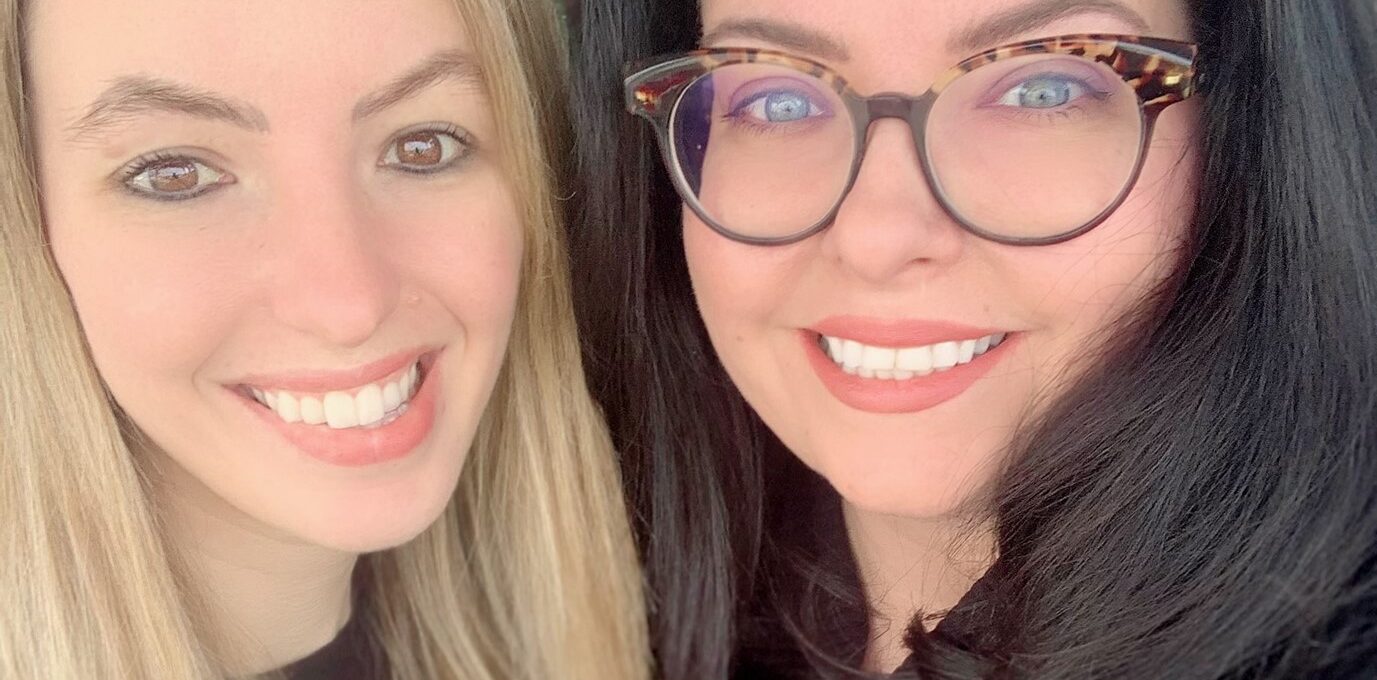
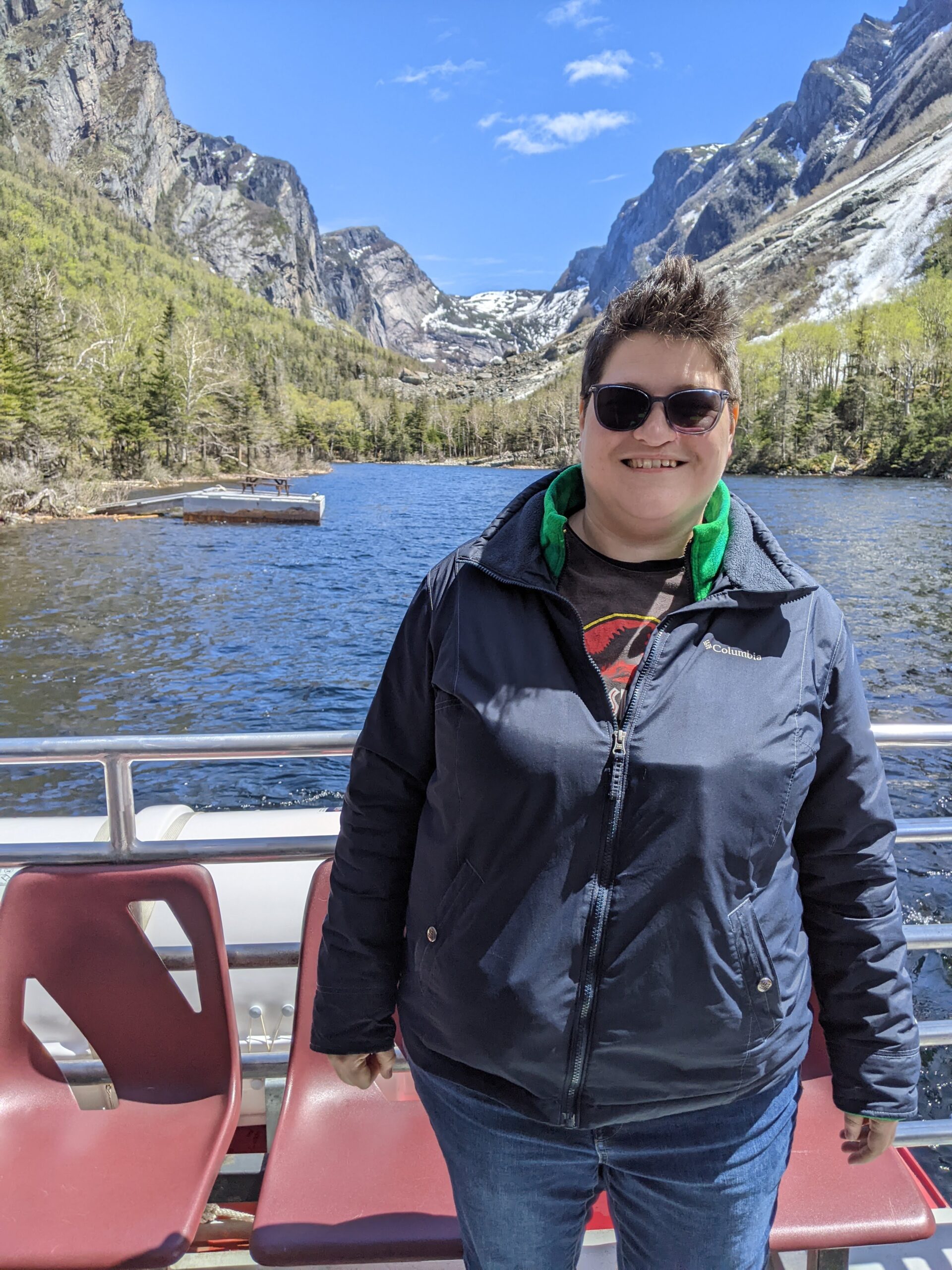
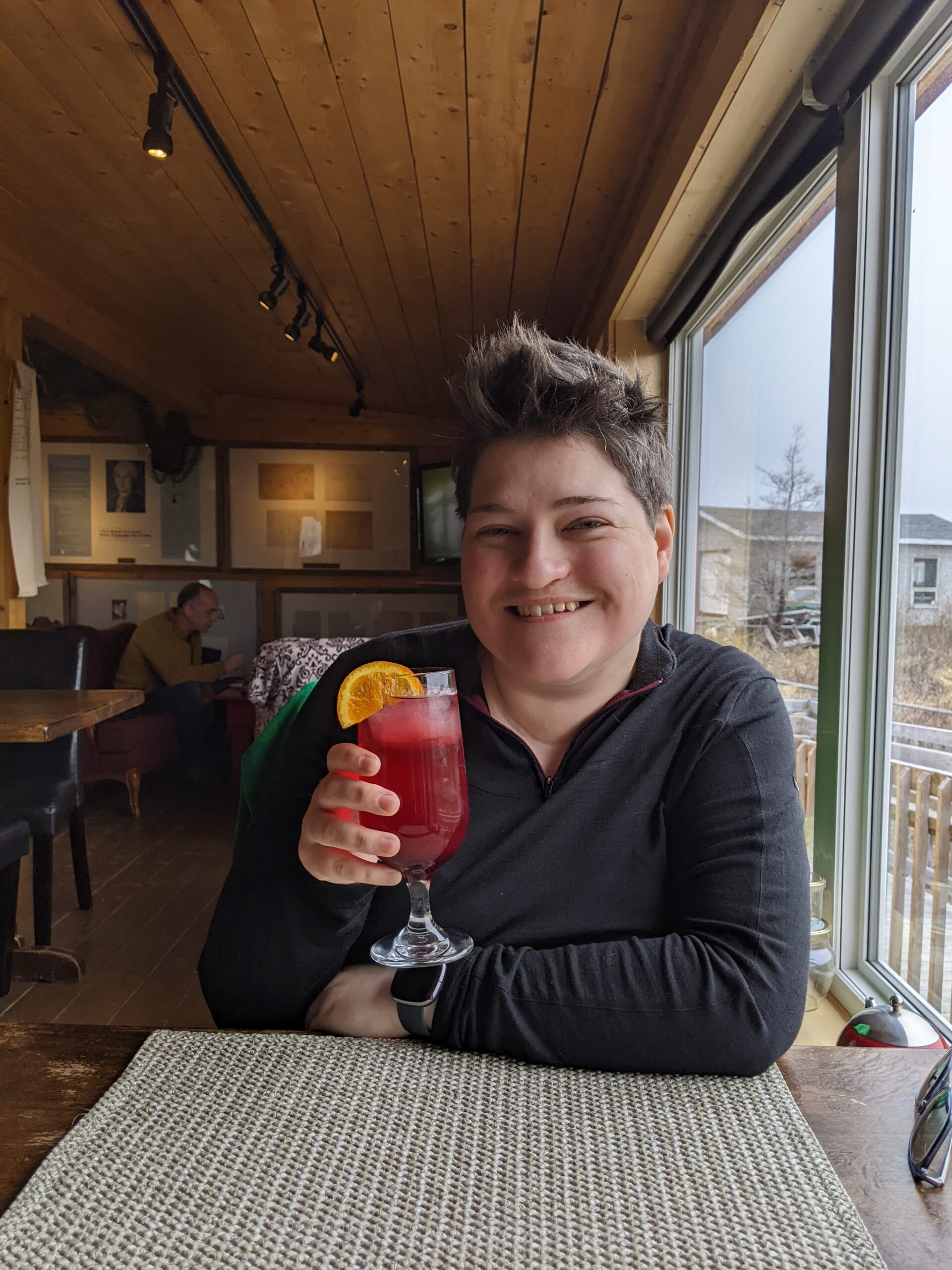

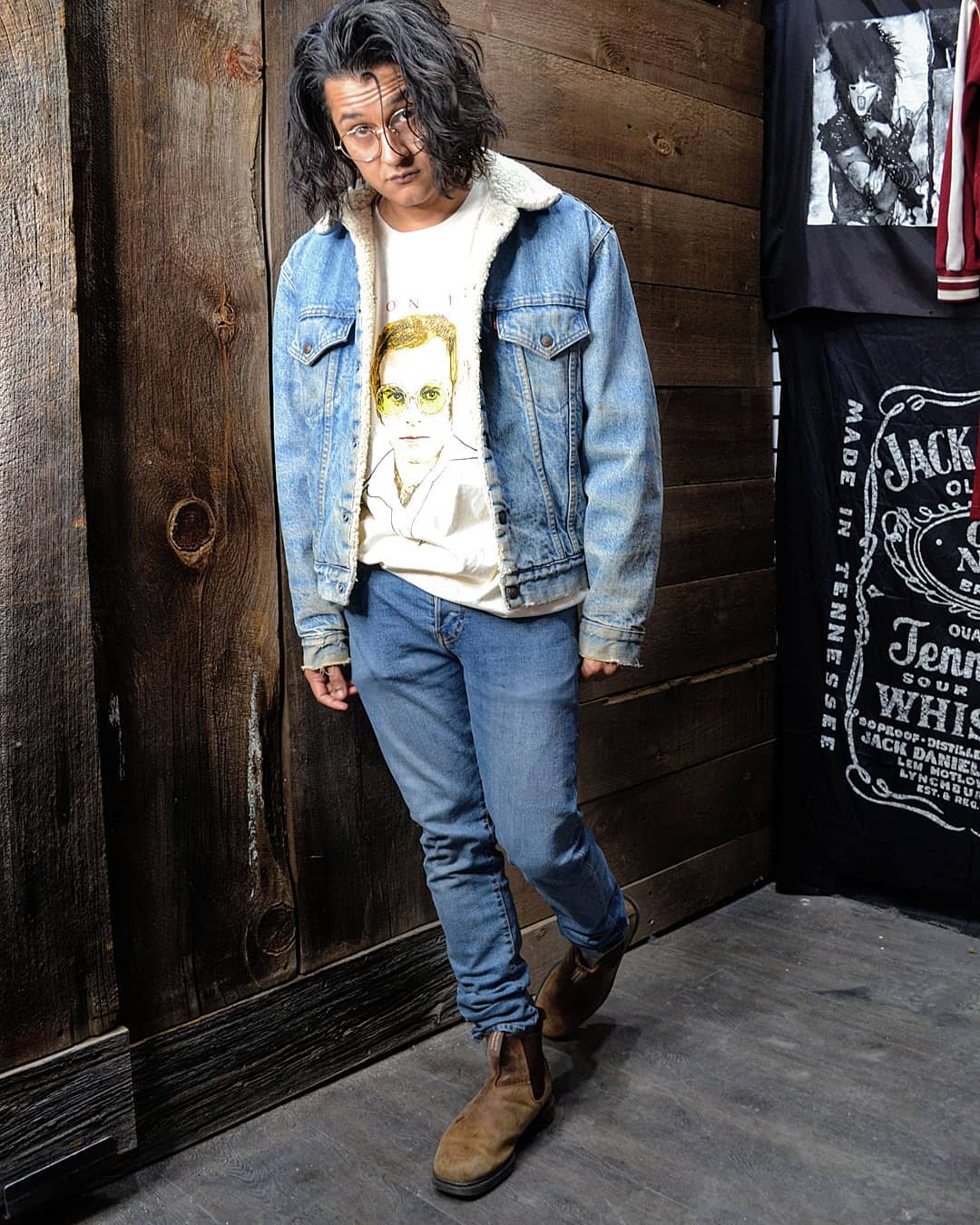
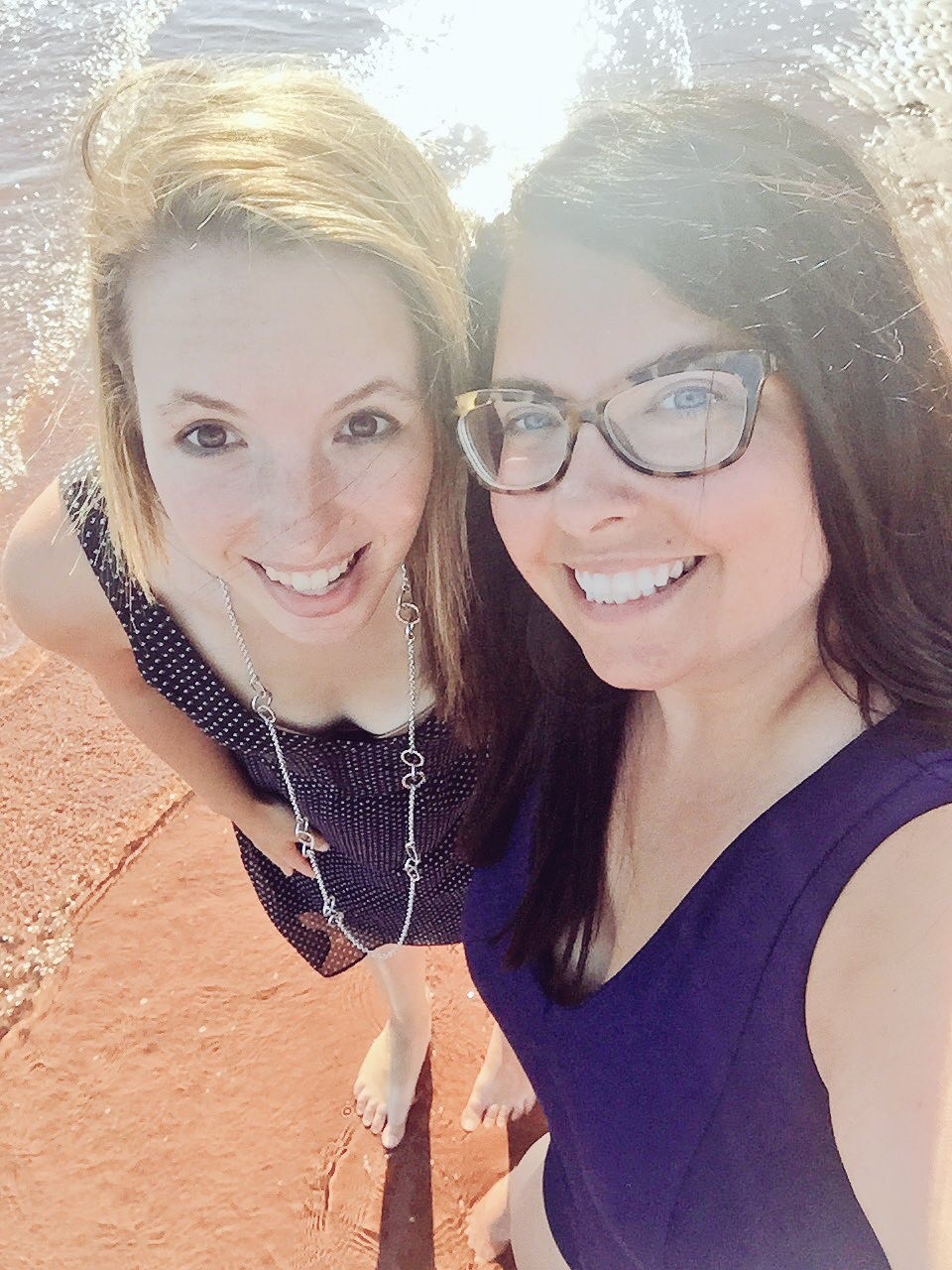
Thank you for sharing your story. My partner was diagnosed in 2007, and we do often feel isolated as a lesbian couple living with MS. Both communities have little exposure to the other. Good to hear you are active in both areas, and have each other for support. Happy Pride 🏳️🌈
Thank you all for sharing your stories; I appreciate you! Belated Happy Pride 😀